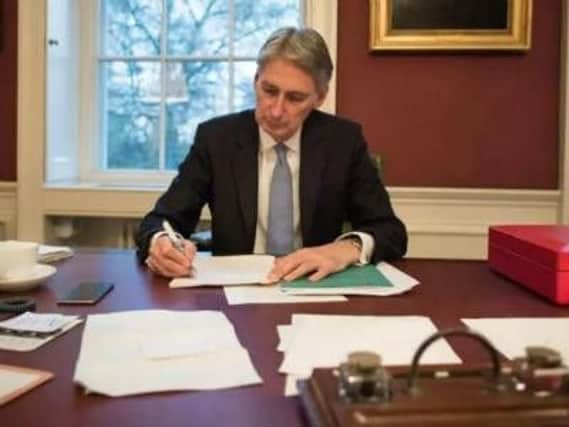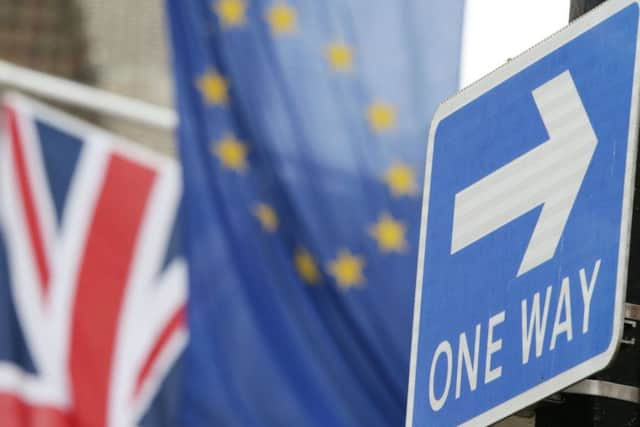Mark Casci: Row over National Insurance was last thing we needed as Article 50 looms


Just under a week ago Philip Hammond got his taste of Budget humiliation after he was forced, down the barrel of a gun, to abandon the hugely unpopular shake-up of the rate of National Insurance contributions (NICS).
It was, many cried, an attack on the small businessman and woman at a time when Government should be doing everything possible to provide stability and confidence in the UK economy.
Advertisement
Hide AdAdvertisement
Hide AdA tax increase of any sort is never going to be popular and I for one was so flabbergasted when I heard its announcement that I had to turn to colleagues to make sure I had not misheard it.


The whole process will have given Spreadsheet Phil a taste of the horrible reality of being Chancellor of the Exchequer in modern politics, namely that trying to do things fairly can often be very bad politics.
We saw it in 2012 with the furore over the so-called Pasty Tax, a change to the rate of VAT that would result in baked goods such as sausage rolls and Cornish pasties being more expensive to buy.
Like NICS, the move was taken as an assault on the common man. Increasing the cost of a cheap food stuff, enjoyed by people on lower incomes, was seized upon by Ed Miliband’s opposition as a clear signifier that the Government was out of touch, an assertion that was given further weight when David Cameron and George Osborne’s bona fides regarding pasty consumption buckled under scrutiny.
Advertisement
Hide AdAdvertisement
Hide AdFor NICS, the victim was the favoured stereotype of the tabloids, the White Van Man.


“Spite Van Man” splashed The Sun next to a picture of the chancellor with many other of the nationals quick to deride the measure.
Clearly having learned from the Pasty Tax, which ran on for months, Theresa May put the kybosh on the shake-up within days.
Article 50 looms and she needs to show strength as she begins in earnest the gargantuan task of extricating the United Kingdom from nearly half a century of international deals.
Advertisement
Hide AdAdvertisement
Hide AdVictory for the common man? Perhaps, but the U-turn speaks to a wider problem that occupants of Number 11 are going to have.
A 2014 study from the Institute of Fiscal Studies showed that the whole Pasty Tax affair showed that making changes to the tax system was extremely difficult and actually proved damaging to longer term efforts to carry out reform.
I have little doubt that economists will in the ensuing months demonstrate quite clearly that such a rapid demolition of the NICS shake-up had not had the salient economic impact that many had claimed.
I am not defending the policy or the subsequent U-turn.
Tax increases are never popular but the reality of life is that now and again they are necessary. If they are to be personalised and demonised before they are even get a chance then one must ask what the point in holding budgets is in the first place?
Advertisement
Hide AdAdvertisement
Hide AdThe really concerning detail of this sorry episode is the apparent lack of awareness from the chancellor and his team of the fact that a shake-up of National Insurance had been ruled out by his own party in the 2015 manifesto. That may seem like a lifetime ago given the political eartquakes of last year but ultimately we are talking less than two years.
If such fundamental lapses in memory are occuring already one must how well placed we are for one of the most challenging political and economic chapters in the modern history of the UK.
Next week the race begins. The scrutiny of detail must be absolute if we are to ensure we emerge from this stronger than we were on June 22 last year or we will have commited an act of economic self-harm unseen in a century.
The time for foolish errors is resolutely not now.